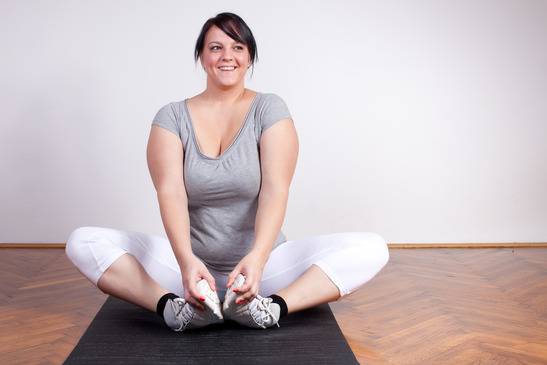By Marilyn Hoyt C.P.T N.A.S.M, C.E.C

Approximately 34 million adults in America are obese, according to reports by the President’s Council on Fitness. Obesity is primarily caused by poor diet and lack of exercise, and can lead to a number of serious health conditions including heart disease, diabetes, osteoporosis, and even some cancers.
While weight loss surgery can jump start your weight loss, exercise and healthy eating cannot be ignored. But for many people who are overweight, physical activity can be daunting. However, avoiding exercise only perpetuates the cycle that causes obesity.
No matter how heavy you may be now, do not let your current weight keep you from physical activity. Not only will exercise help you lose weight, it will also help lower your risk factor of heart disease, depression, diabetes, and other life-altering diseases.
Here are a few tips to help you get moving.
- Talk to your doctor. Before you begin any type of regular physical activity, you need to consult with your physician. Request an exercise stress test to help determine which types of physical activities are safest for you based on your weight and overall fitness level.
- Start small. Don’t dive head first into the most physically demanding activities. Instead, begin with low-impact exercises like walking to prepare your muscles, joints, and cardiovascular system for exercise. Start with a short 10-15 minute walk at a comfortable pace most days of the week, gradually increasing speed and distance as you gain more endurance. As a general rule of thumb, try increasing your speed and distance by 10 percent each week.
- Care for your joints. Your joints take the brunt of the stress when you move your body, and many forms of exercise create added stress that your joints may not be able to handle. Instead of high-impact activities like running, choose low-impact exercises to protect your joints, knees, and back. A few suggestions include: riding a stationary recumbent bike, working out on an elliptical trainer, walking on a treadmill rather than on the road, and swimming. If you have bad hips, even walking can be painful. Biking or swimming are better alternatives.
- Keep things interesting. The more variety you have in your workout, the more likely you are to stay motivated and consistent with your exercise routine. Although it is a necessary component of your health, exercise should be fun, so choose activities you enjoy. Joining a group fitness class or recreational sports team will also help you stick with it. Check out your nearest fitness center for classes such as yoga, cycling, and water aerobics.
- Warm up and cool down. Avoiding jumping right into your workout when your muscles are cold and tight. Doing so increases your risk of injury and can affect you performance. Take five to 10 minutes to warm up with active stretching and a brisk walk to get the blood flowing. After your workout, gradually reduce your intensity, allowing your body to cool down and your heart rate to return to its resting level.
If you would like someone to help and encourage you on your journey to health and fitness, contact our Fitness Expert, Marilyn Hoyt.

Marilyn Hoyt is a Dallas-based Certified Professional Trainer. She holds group workout sessions, including groups specifically designed for people who are significantly overweight, intermediate and advanced fitness camps, and provides in-home personal training.“Aiming to educate, motivate, and inspire others to live life with purpose!”Visit Marilyn online at: www.rockfitnesscamp.com.
Follow Marilyn on Instagram: @rockfitnesscamp
Like Marilyn on Facebook: FitnessWithPurpose












